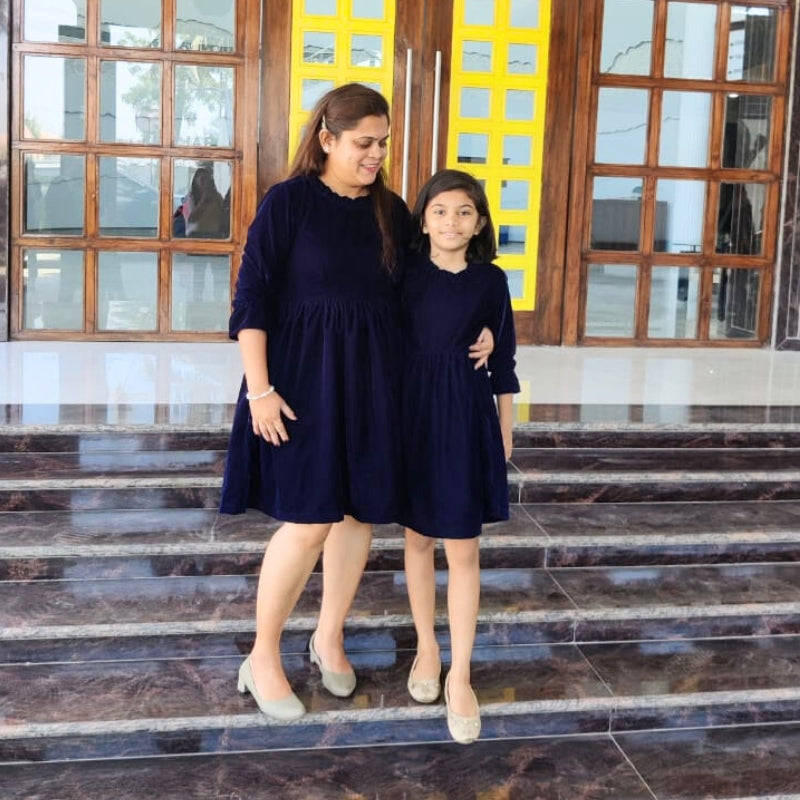Is your teen acting differently lately? Are they more withdrawn or moody? Or perhaps they're bursting with energy one moment and crashing the next? Adolescence brings emotional highs and lows — a powerful and often overwhelming phase of growth. It's a time of incredible growth, both physically and emotionally. While these changes can be exciting, they can also be incredibly challenging for teens and their parents.
One of the toughest parts of parenting during this phase is understanding what’s going on inside your teen’s mind. They're exploring their inner world, filled with new experiences, emotions, and pressures. The mental health challenges they face can be tricky to spot, but catching these signs early on is essential to helping them through it.
In this guide, we’ll explore some common signs of anxiety and depression in teenagers during puberty. By the end of this guide, you'll have a better toolkit to navigate these stormy waters and support your teen through this critical stage of life.
Causes Of Anxiety In Teenagers
During adolescence, a teenager has to deal with several changes that are happening in and around them. Sometimes, these changes can be very stressful and overwhelming, which may lead to anxiety. Hormones play a major role in this. Social norms, too, play an equally important role here. Feeling stressed out may be due to wanting to fit in better, and the complex dynamics of friendships and teenage relationships.
Additionally, the pressure of staying on top of school work and dealing with strenuous relationships (whether family or otherwise) can be challenging for teenagers and their mental well-being.
Symptoms Of Anxiety And Depression

Figuring out if your teen is struggling with anxiety or depression can feel like trying to solve a puzzle with missing pieces. They might not always be open about what's going on inside their heads. But don't worry, there are cues! Certain behaviors and changes can tip you off. Let's talk about some of those red flags.
Also Read: A Parental Guide: How to Talk to Your Daughter About Periods?
Symptoms Of Anxiety
Teenagers experiencing mood swings is a typical part of adolescence. It is during this period that they discover their identity and find their place in the world. However, at times, what seems like small shifts in behaviour can signal deeper emotional challenges. They may not realise it, but anxiety can creep up on them.
Let's discuss some typical indicators of anxiety:
- If you notice your teenager getting stressed and overwhelmed easily and frequently, it might be a sign of something serious.
- Anxiety can manifest in the form of regular headaches, stomach aches, or muscle tension. If your teenager is experiencing these symptoms frequently, it could indicate that their body is trying to communicate that something is wrong.
- Does your teen seem overly irritable, easily annoyed, or experience difficulty falling asleep? These may be hints of anxiety.
Keep in mind, it is common for teenagers to experience stress and/or anxiety occasionally. However, if these symptoms persist and are getting in the way of their everyday activities, it could be time to seek assistance.
Also Read: Choosing The Right Bra For Teenagers: Tips And Advice
Symptoms Of Depression
It can be difficult for parents to see their adolescent facing emotional struggles, but recognising their needs is the first step toward support. Let's discuss a few indicators of depression.
- If your teenager once enjoyed spending time with friends or engaging in hobbies, but now shows no interest in any activities, it could indicate a problem. Depression can significantly decrease their zest for life.
- Do you notice any changes in dietary patterns or a sudden shift in their eating habits? Are they eating significantly more or significantly less than their typical amount? Noticeable fluctuations in weight can indicate a potential issue.
- Observe whether your teenager feels worn out all the time, even after getting enough rest. Depression can drain their energy, causing even basic tasks to feel like a tremendous struggle.
- Is your teen having trouble working on their academic assignments or facing challenges when making choices? These signs might indicate that depression is impacting their ability to concentrate.
- Are you and your child growing apart? If your adolescent is isolating themselves more and showing dwindling interest in socializing with friends and family, it may indicate they're facing difficulties.
Ways To Address Teenage Anxiety
Are you worried about your teenager's anxiety? You are not alone here. Let's analyze specific strategies to assist them in managing these difficult emotions.
1. Initiate Communication

Establishing a solid bond with your adolescent is essential. Inform them that you are there to listen without passing any judgments.
Asking basic questions like, "What is your current mood?" can also help significantly. Keep in mind, the goal is to provide a secure environment for them to open up about their thoughts and emotions.
Also Read: Tips To Bond With Your Teenage Daughter
2. Look For Expert Advice
Occasionally, the assistance of experts can greatly impact the situation. An expert in adolescent therapy can offer beneficial techniques and resources. They may recommend methods such as Cognitive Behavioral Therapy (CBT) to assist your adolescent in handling their anxiety in a positive manner.
3. Take Care Of Their Physical And Mental Well-Being
Having a strong body can result in having a stronger mind. Promote consistent exercise - it's an excellent way to relieve stress! And remember the significance of proper nutrition. Involving your teenager in meal planning can make healthy eating a more pleasant experience.
4. Instruct On Methods To Unwind
Engaging in meditation and deep breathing can have miraculous effects. As such, even concentrating on breathing can assist in realigning thoughts. You'll be surprised to know that there are numerous guided meditation applications ready to facilitate the process.
5. Develop A Digital Equilibrium
We understand the significance of screen time for teenagers. However, it is crucial to establish boundaries.
Designating no technology pockets, such as the dining area, may promote in-person communication. Also, think about utilizing parental control applications to effectively regulate screen time.
6. Promote Social Relationships
Friends can provide valuable help and assistance. Therefore, motivate your teenager to participate in clubs or engage in volunteering to make new connections and develop lasting friendships.
7. Collaborate With The Educational Institution
Teachers and counselors are important allies who can provide valuable support. Therefore, make sure to update them regarding your teenager's obstacles and collaborate accordingly to establish a nurturing educational setting. This can involve talking about adjustments such as additional time for exams.
Tips For Teenagers Coping With Depression And Self-Care
One of the most important aspects of handling depression is taking care of oneself. Assisting your teenager in setting up a daily schedule is one of the most beneficial things you can do. Establishing a routine can greatly impact one's day, offering a feeling of steadiness during chaotic times.
Motivating your adolescent to explore activities they find enjoyable can also make a significant difference. Engaging in tasks like painting, playing music, or reading can create happy moments and help ease the emotional weight that depression can bring.
Don't overlook physical activity - it not only benefits the body but also greatly improves mood. Perhaps you can even accompany them on a stroll or bike ride, making space for both connection and gentle support.
Eating healthy is another important part of the equation. The focus is not on rigid diet plans, but on ensuring they receive proper nourishment to feel their best. That said, sleeping is equally, if not more, significant too. Assisting your adolescent in sticking to a consistent sleep routine and establishing a relaxing bedtime ritual can greatly enhance the quality of their sleep.
Also Read : Tips To Deal With Your Teen’s Puberty Fears
Decreasing The Stigma Associated With Adolescent Mental Health
When it concerns mental health, we all have a role to play in ending the stigma. To that end, you should begin by learning about mental health for yourself while also educating your family on the topic. The greater your knowledge, the more you can assist not only your adolescent but also others who may be experiencing a difficult period.
Having honest conversations about mental health in your household is another way to tackle the stigma surrounding mental health. Do not overlook the importance of community participation. Backing mental health efforts and promoting open dialogues can foster a more empathetic and encouraging atmosphere for all individuals.
When we advocate for mental health awareness, we’re not just helping our own families - we’re helping to change the conversation for everyone.
Conclusion
Going through puberty is already hard as is, and dealing with issues like anxiety and depression can further cause things to spiral. However, by identifying the signs, comprehending the consequences, and offering assistance to your adolescent, you can support them through this stage with care, understanding, and the right tools.
Having open communication and a strong support system is crucial in helping your teenager navigate these challenging years. And remember, if you notice any of the symptoms mentioned here, don’t hesitate to seek professional help for your teen.
It could be the first step toward their recovery!
Shop all Adira essentials, including beginner's bra, for an extra 10% off using code "TEENCARE"































